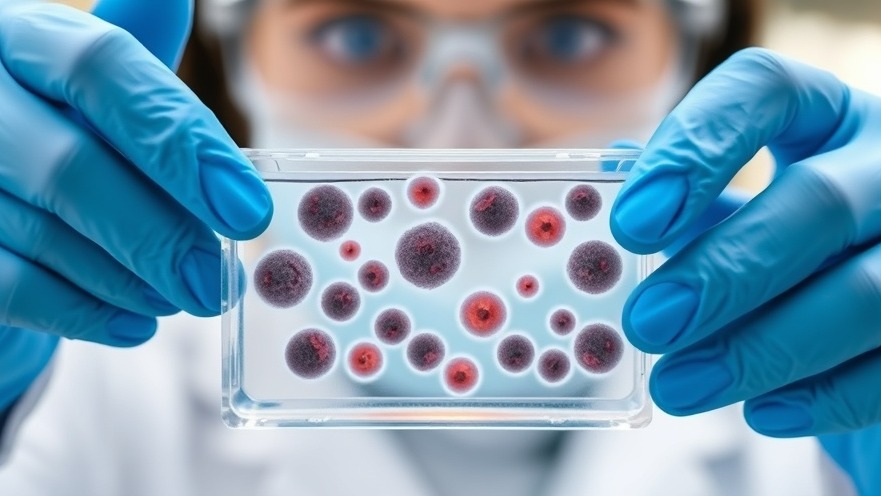
The Promising Future of Cancer Treatment with Organoids
In a remarkable development for esophageal cancer treatment, researchers at the Institute of Science Tokyo have pioneered the creation of lab-grown patient tumor miniatures, known as organoids. These miniatures offer substantial hope in overcoming the challenges associated with chemotherapy-resistant esophageal squamous cell carcinoma (ESCC). With cancer remaining one of the leading causes of mortality, particularly in Japan and East Asia, these advances could redefine treatment protocols and patient outcomes.
Understanding the Challenge of ESCC
Esophageal cancer ranks highly among the world’s deadliest cancers, particularly due to its aggressive nature and high recurrence rates. According to recent data, more than 90% of esophageal cancer cases in East Asia correlate with ESCC, underscoring the need for innovative treatments. Alarmingly, survival rates show that only 55% to 63.6% of patients remain cancer-free five years post-treatment, marking critical gaps in effective therapy.
The Innovation Behind Patient-Derived Organoids
In an effort to combat the limitations of traditional chemotherapy techniques, a research team led by Professor Toshiaki Ohteki developed an organoid library derived from patient tumor samples. These three-dimensional structures were designed to replicate the specific traits of patient tumors, presenting a more accurate model for studying drug resistance mechanisms. Unlike traditional cell line models that often fail to mimic the original cancer environment, these organoids provide insights into how various tumors respond to chemotherapy.
Real-World Applications and Testing
The study, published in Communications Biology, highlights how these organoids, created from samples of 24 different ESCC patients, maintained critical genetic characteristics found in the original tumors. This technological breakthrough allows researchers to explore tailored therapeutic candidates more effectively. When transplanted into immunodeficient mice, these organoids grew into tumors characteristic of true patient cancers, retaining vital features like nuclear p53 accumulation—a key indicator of TP53 mutations.
Potential Impact on Treatment Protocols
Utilizing the ESCC organoid library, the research team assessed the response of each line to common chemotherapy agents such as cisplatin and 5-fluorouracil. The results were revealing: while 71% of the organoid lines demonstrated sensitivity to treatment, 29% exhibited resistance. This ability to predict drug response presents a revolutionary approach in personalizing cancer treatment, enabling practitioners to prescribe the most effective interventions tailored to each patient’s specific cancer profile.
Incorporating Technology into Oncology Practices
The growing trend of integrating advanced technologies such as organoids into clinical practice offers mitigating strategies against longstanding treatment challenges. As concierge health practitioners, staying abreast of these advancements is crucial in informing patient care. The emergence of organoids not only opens up avenues for personalized medicine but also streamlines the decision-making processes surrounding treatment protocols.
Future Predictions and Insights
As research progresses, the future of treating esophageal cancer looks promising. Continuous advancements in organoid technology could lead to extensive libraries of cancer models, ultimately guiding oncologists toward more effective and individualized treatment plans. Additionally, such developments may encourage collaboration between tech innovators and medical professionals, driving forward the fields of personalized medicine and targeted therapies.
Leveraging the Power of Actionable Insights
For practitioners eager to enhance their knowledge and application of emerging technologies, it is vital to engage with continued education and collaborative networks. Understanding the mechanisms of resistance in specific tumors will empower healthcare providers to make more informed decisions in their treatment strategies, thereby improving overall patient outcomes.
By embracing innovations like patient-derived organoids, practitioners can not only advance their own understanding but also champion new standards of care for esophageal cancer patients. The transition from conventional methodologies to those informed by dynamic research findings signals a new era in oncology, offering inspiration and direction for future endeavors.
Call to Action: As advancements in research emerge, consider how your practice can integrate novel therapies like organoids. Stay informed, engage in continuing education, and foster collaborative discussions to elevate patient care in your clinic.
 Add Row
Add Row  Add
Add 






Write A Comment